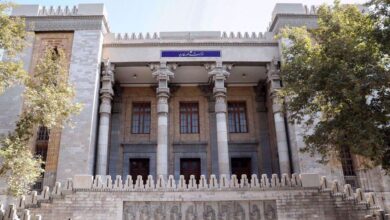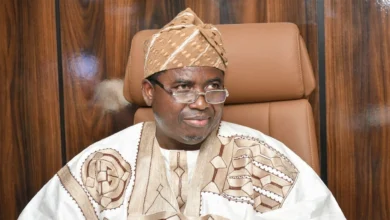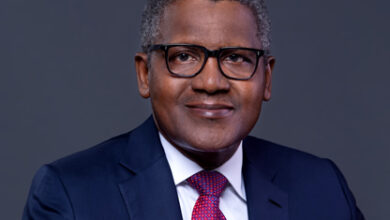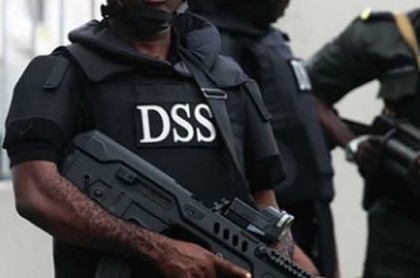The Abiku called Magu
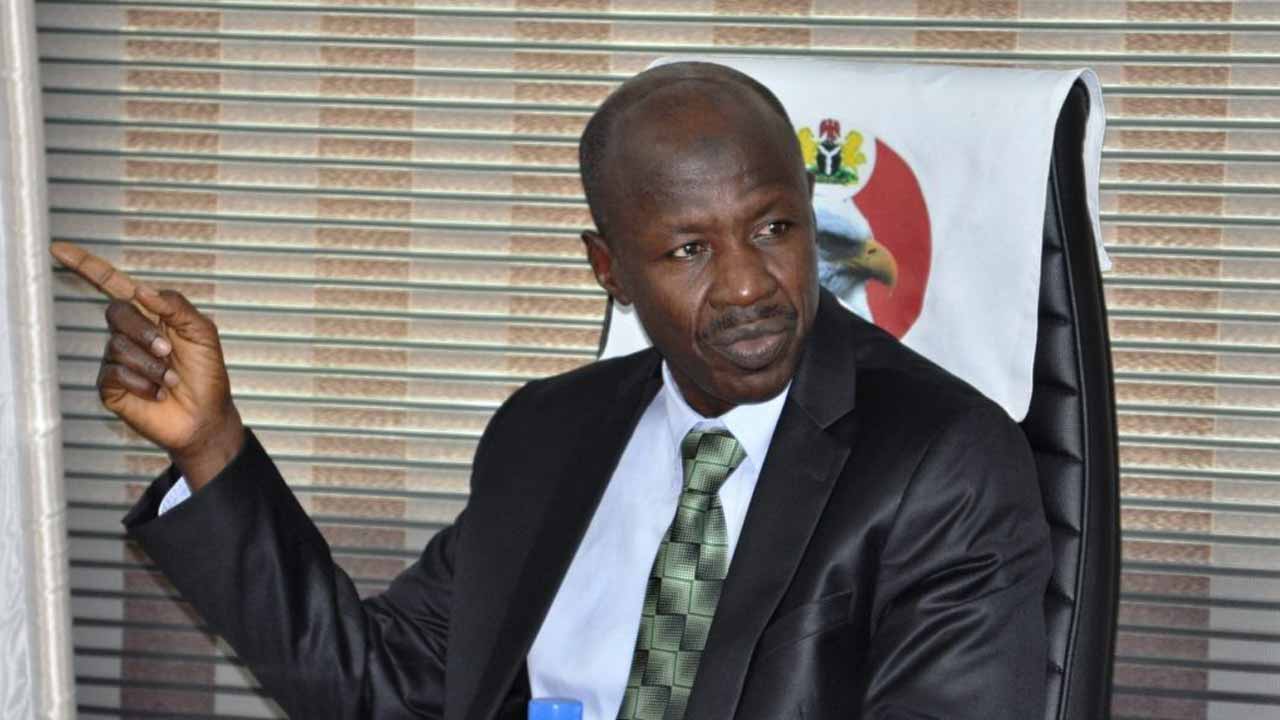
By Dele Agekameh
In vain your bangles cast
Charmed circles at my feet;
I am Abiku, calling for the first
And the repeated time….
– Wole Soyinka
The above quotation is the opening stanza in the eight-paragraph poem titled “Abiku” by Nobel Laureate Wole Soyinka. Abiku in Yoruba folklore refers to a child that is predestined to die. The child comes and goes repeatedly at intervals, in spite of all the sacrifice and rituals performed by the repeatedly bereaved parents, to prevent him or her from coming back to them.
In this opening stanza, the abiku is literally mocking the bereaved parents as he or she comes again, calling for the umpteenth time in spite of the sacrifices and incisions made on his/her body to forestall a return. The abiku simply comes and goes freely, in defiance of all the rituals.
The running episode of Ibrahim Magu, the acting chairman of the Economic and Financial Crimes Commission (EFCC), has become the modern day story of abiku as told by Soyinka in his poem written more than 50 years ago. Just when people thought the Magu story was gradually thawing out, all of a sudden, the issue of his confirmation or not as the substantive EFCC chief has again reared its head. And this time, the real battle line seems to have been drawn between the presidency, that is the executive, and the Senate, representing the legislative arm of government.
The bone of contention is who has the final say over Magu’s appointment or confirmation as EFCC chair. For what you care, the issue has been raging in different dimensions for several months since he first appeared for screening at the Senate chambers in December 2016. At that time, he was rejected by the senators on the ground that a damaging report about him was forwarded to it by a sister agency, the Department of State Services (DSS).
It was obvious that the Senate merely used the DSS’ report as a smokescreen to tactically edge Magu out because during the screening, he was not allowed to defend himself against the allegations put forward by the security agency. A furious presidency then took up the case and set up a panel headed by the attorney-general of the federation to look into the allegations and report back to it. After a few weeks, the panel returned a not-guilty verdict but by this time, the president, Muhammadu Buhari, had gone on medical vacation abroad.
You can imagine a government appointee antagonising another appointee of the same government and the president looking the other way.
On the president’s return, this clean bill of health emboldened the presidency to renominate him and forward his name back to the Senate for confirmation once more. But just before he was invited to come forward for a second screening, the DSS had laid an ambush for him in the form of another letter restating and reaffirming its earlier position that, indeed, Magu was not fit to be appointed or confirmed as chairman of the anti-graft body.
But the presidency would not hear anything like that and so the issue has become an undying tussle between the executive and the legislative arm of government. The matter came to a head last week when Yemi Osinbajo, the acting president, made it known publicly that Magu will certainly remain the chairman of the EFCC no matter what. This was contained in his address that was read on his behalf by Nasir el-Rufai, the governor of Kaduna State, at the commissioning of the EFCC office complex in Kaduna.
That pronouncement must have greatly rattled the Senate who had earlier vowed not to screen any nominee sent to it by the presidency for confirmation into any office as long as its directive on Magu is not carried out. As it is, it is crystal clear that both the presidency and the Senate are now at daggers-drawn over this issue.
But why is this so? The issue has to do with the ambition of Bukola Saraki, the Senate president. Saraki has never hidden the fact that he is very ambitious and that he can do anything. If possible, he can even impeach Osibanjo, and that issue has formed a major platform of subterranean gossip in the media in recent times. But the fact remains that Saraki can crush anybody standing in his way, and one of such people is Magu. Saraki wouldn’t mind if he could have his way to keep Magu away, so as not to constitute a perpetual stumbling block to his ambition.
The reason is simple. Magu has dealt with Saraki several times in the past on some alleged corruption issues. And now that he is Senate president, Saraki is a man who knows how to use power and to command loyalty as well. Above all, he is very smart. He believes he can get to anywhere he wants in this country. In the first instance, he controls the levers of politics in Kwara State, his home town. In that case, if he wants to come back to the Senate as many times as he wishes, he would surely get it because he is in total control.
Since President Buhari decided to play the politics of non-interference right from the onset, that gave Saraki the latitude to zero-in on his colleagues. He knows patronage and how to dish it out. That is why he was able to convince his colleagues that Magu is bent on destroying the National Assembly by planning to probe their activities. As a result of this, all the members have queued behind him for the sake of their survival. So, what is going on now may be viewed as a survival war between the senators and Magu.
Besides, there are two other conflicting or confounding issues involved in this. The presidency is claiming that the Constitution supersedes the EFCC Act, meaning that the EFCC Act is subordinate to section 171 of the Constitution, which says the president can appoint without necessarily sending the name to the Senate for confirmation. One would have expected either the Senate or the presidency to go to court for proper interpretation of this section. At least, it will help our democracy.
The Senate’s argument, and by extension, the argument of the National Assembly, is that the executive does not respect their resolutions. The question is: If they believe strongly that the person rejected by them must vacate office immediately, why did they bend over backward to screen Magu a second time? By their action, it means the president can nominate Magu as many times as possible because the interpretation of the Constitution gives the president the power to nominate as many times as possible.
For those who believe that it could have been a different ball game if Buhari was physically present in the country, the issue is neither here nor there. This is because it was under Buhari’s nose that the DSS wrote the damaging report against Magu, not once, but twice. You can imagine a government appointee antagonising another appointee of the same government and the president looking the other way. The impression that gives is that the president is weak. This is where the problem with this government lies.
At any rate, Osinbajo may be trying his best to reverse this trend, but with the wolves hovering around him in the Villa, it appears there is little he can do, otherwise, he could easily be labelled a spoiler, a saboteur or an over-ambitious fellow. For instance, can Osinbajo tame a Lawal Musa Daura, the Director General of the DSS, who is reported to have clandestinely done recruitment into his department, secretly bringing in 50 recruits from Katsina state alone, while Lagos had just a miserable seven.
Though Magu may have his own excesses, such as being too undiplomatic, as well as lacking finesse in his dealings, but give it to him that he is ready to prosecute the anti-corruption war to its logical conclusion. While the debate was raging last week, all Magu could contribute was that a prison should be built in the notorious Sambisa Forest to permanently keep away corrupt Nigerians from civilisation. That is surely one of the most undiplomatic utterances a man in the eye of a storm can make.
*Agekameh, a senior journalist, writes from Lagos and can be contacted via SMS (only) to: 08058354382.



